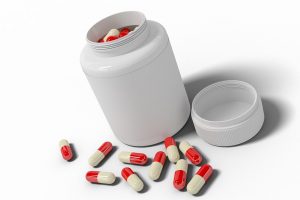Jazz Pharmaceuticals, Lundbeck and Alexion Pharmaceuticals have agreed to pay a total of $122.6m to resolve allegations of paying kickbacks through copay assistance foundations.

Image: Three pharma firms have agreed to pay $122.6m to settle kickback allegations. Photo: courtesy of sscreations / FreeDigitalPhotos.net.
Subscribe to our email newsletter
The US Department of Justice (DOJ) alleged that the three pharmaceutical firms have violated the False Claims Act by illegally paying the Medicare or Civilian Health and Medical Program (ChampVA) copays for their own products via purportedly independent foundations that the firms used as mere conduits.
The beneficiary needs to make a partial payment when a Medicare beneficiary secures a prescription drug covered by Medicare, which may result in a copayment, coinsurance or a deductible (collectively copays).
Patients need to pay a copay for medications under ChampVA. The Anti-Kickback Statute restricts a pharmaceutical firm offering or paying, directly or indirectly, any remuneration in the form of money or any other thing of value to motivate Medicare or ChampVA patients to purchase the company’s drugs.
The DOJ’s Civil Division assistant attorney general Jody Hunt said: “Pharmaceutical companies undercut a key safeguard against rising drug costs when they create assistance funds to serve as conduits for the companies to subsidize the copays of their own drugs.
“These enforcement actions make clear that the government will hold accountable drug companies that directly or indirectly pay illegal kickbacks.”
Both Jazz and Lundbeck have entered into five-year corporate integrity agreements (CIAs) with OIG as part of their respective settlements.
Under CIAs, the firms have to implement measures, controls and monitoring to promote independence from any patient assistance programs to which they donate.
The firms have also agreed to implement risk assessment programs, in addition to securing compliance-related certifications from company executives and board members.
The government allegations pertain to Jazz’s narcolepsy medication Xyrem, Lundbeck’s Xenazine that was approved to treat chorea associated with Huntington’s disease, and Alexion’s Soliris to treat patients with paroxysmal nocturnal hemoglobinuria (PNH) and atypical hemolytic uremic syndrome (aHUS).
The US Attorney Andrew Lelling said: “We are committed to ensuring that pharmaceutical companies do not use third-party foundations to pay kickbacks masking the high prices those companies charge for their drugs.”
 Advertise With UsAdvertise on our extensive network of industry websites and newsletters.
Advertise With UsAdvertise on our extensive network of industry websites and newsletters.
 Get the PBR newsletterSign up to our free email to get all the latest PBR
news.
Get the PBR newsletterSign up to our free email to get all the latest PBR
news.

